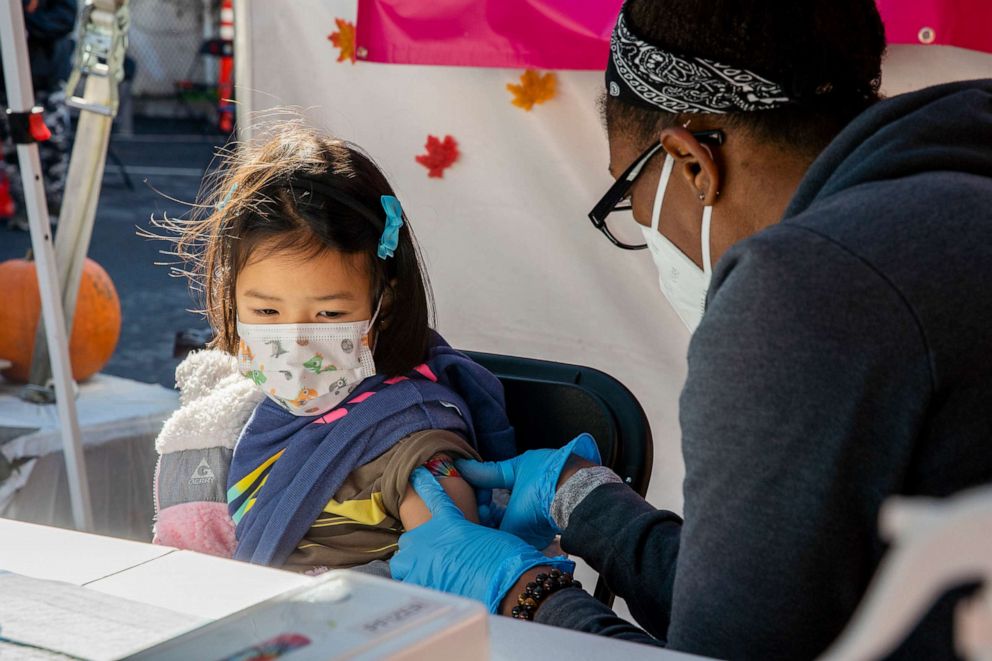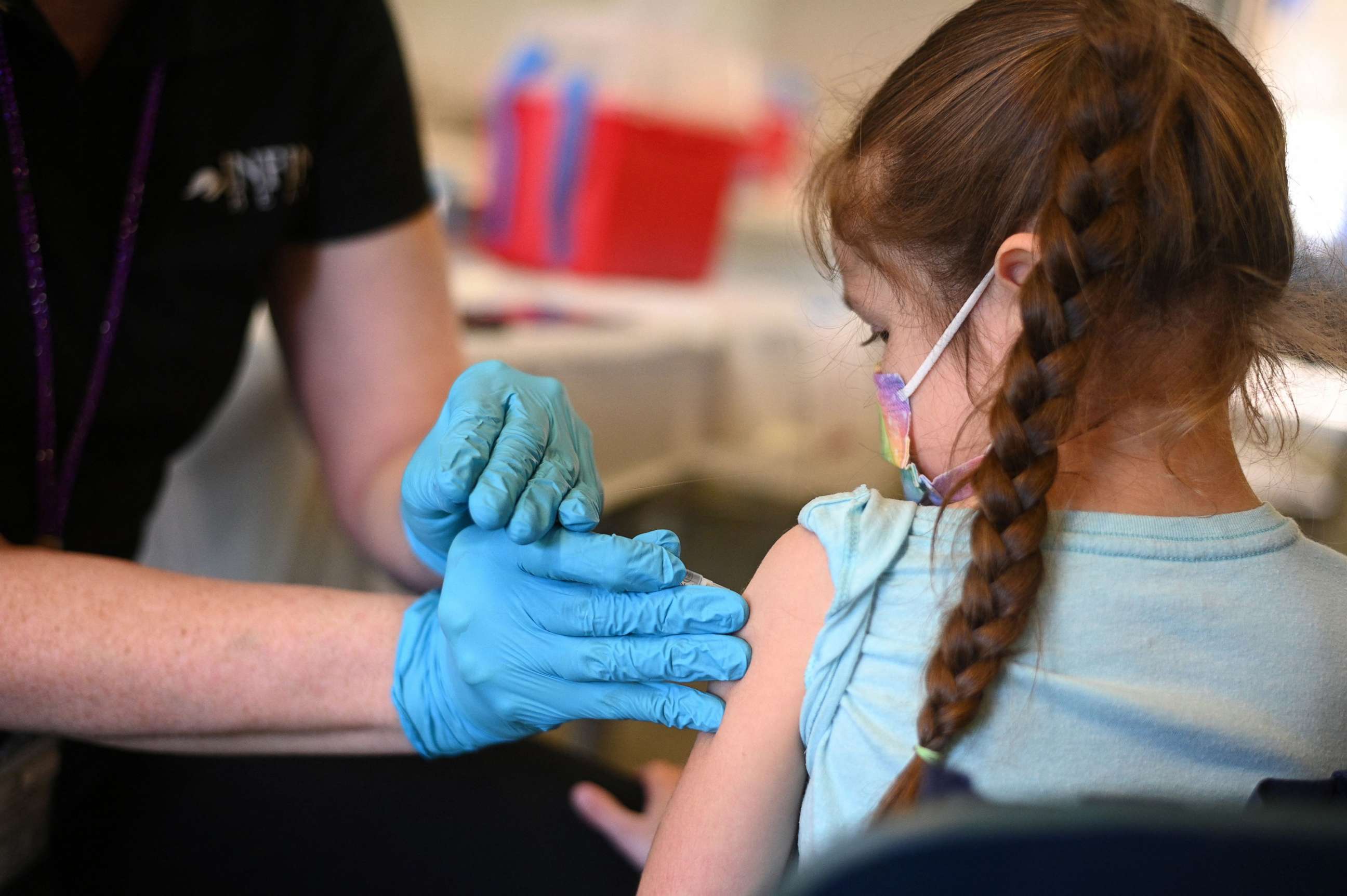CDC committee greenlights Moderna COVID-19 vaccine for children 6-17
Moderna's shot would be the second COVID-19 vaccine available to this age group.
A committee of advisers at the Centers for Disease Control and Prevention voted unanimously Thursday to greenlight the Moderna COVID-19 vaccine for kids ages 6 to 17, clearing the way for parents to have one more vaccine to choose from when considering whether to inoculate their children against the virus.
At this time, the Pfizer-BioNTech COVID-19 vaccine is the only shot available for children and adolescents 5 years old and older.
Last week, the Food and Drug Administration completed the first step in the authorization process, when it signed off on the use of Moderna's COVID-19 shots for children ages 6 and older, following a unanimous vote from their advisers.

CDC Director Dr. Rochelle Walensky is now expected to issue her official recommendation for use.
However, even with another COVID-19 vaccine on the horizon, health experts question how much the Moderna shot will truly move the needle with hesitant parents.
Children 5 years and older became eligible for a primary series of the Pfizer COVID-19 vaccine in November. Even with the shots available for nearly eight months, more than 25.4 million children over the age of 5 are still completely unvaccinated against COVID-19, with just 44% of the age group now fully vaccinated, according to CDC data.
Despite slow uptake, scientists from the CDC stressed on Thursday that vaccination against COVID-19 for children remains critical, as young people are not immune to severe disease or the long-term consequences of the virus.
As parents consider getting their children vaccinated, scientists from Moderna reported that their COVID-19 shots are safe and effective for use in children.

Myocarditis, a form of heart inflammation that can occur following vaccination, remains "rare," according to officials. The greatest risk for the heart inflammation appears to be in adolescents 12 to 17 years old.
For children ages 5 to 11 years old, there have been no statistical significance for myocarditis, and the risk level remains "very low" for younger children, Dr. Tom Shimabukuro of the CDC COVID-19 Vaccine Coordination Unit reported.
Although officials acknowledged that adverse events following vaccination can occur, most people recover in the subsequent weeks and months.
"In general, most adverse events reported after COVID vaccines are mild and transient events like injection site and systemic reactions," one official said.




